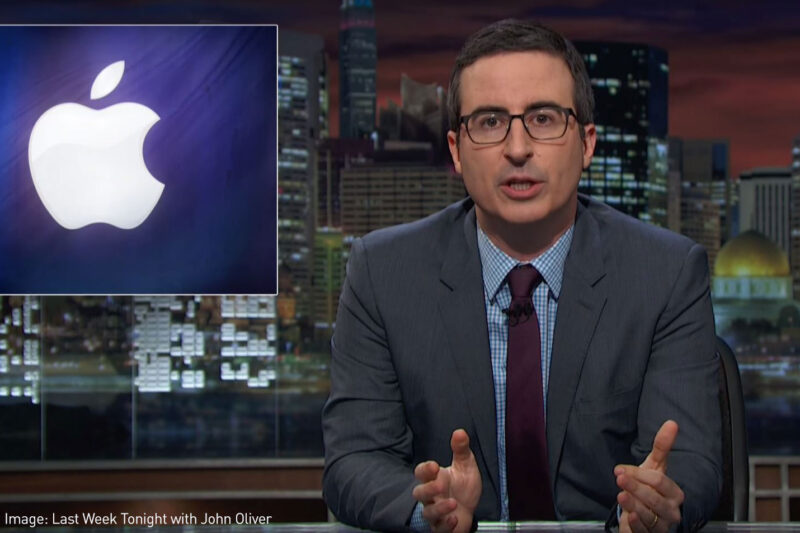
This morning, weโre thankful for John Oliver for tackling FBI v. Apple in a way that only he can.
Last nightโs episode of "Last Week Tonight" made excellent use of Oliverโs wit to explain the recent faceoff that has law enforcement demanding Apple help it break its way into an iPhone belonging to one of the San Bernardino shooters. The FBI claims that it only wants access to this one phone, but Oliver makes the precedent at stake clear.
โThink of the government as your dad,โ Oliver jokes. โIf he asks you to help him with his iPhone, be careful โ because if you do it once you're gonna be doing it 14 times a day.โ Itโs an apt comparison. Law enforcement is already chomping at the bit โ Manhattan District Attorney Cyrus Vance that he has 175 phones heโd like Appleโs help unlocking, and other law enforcement officials around the country have said the same.


%3Ciframe%20allowfullscreen%3D%22%22%20frameborder%3D%220%22%20height%3D%22326%22%20src%3D%22https%3A%2F%2Fwww.youtube.com%2Fembed%2FzsjZ2r9Ygzw%3Fautoplay%3D1%26autoplay%3D1%26version%3D3%22%20thumb%3D%22%2Ffiles%2Fyt_oliver-encryption-final.jpg%22%20width%3D%22580%22%3E%3C%2Fiframe%3E
Privacy statement. This embed will serve content from youtube.com.
The issue is even more fundamental than the security of Apple's products. The FBI, Oliver explains, wants all encryption to be weak enough to allow access when law enforcement wants it. But if it wins, no company will be able to ensure the safety of its customersโ data from the prying eyes of malicious actors. As a mock Apple ad at the end of the episode rightfully notes, โWeโre only one step ahead of hackers at all times.โ
โItโs a hugely complicated story with massive implications,โ Oliver starts off, โand once we get to the end of it, you may not feel the same way that you do now.โ
Itโs true. Even Sen. Lindsey Graham (R-S.C.), once a vocal supporter of undermining encryption, said in a Senate Judiciary hearing last week that by the national security arguments for strong encryption.
Oliver sums up: "When you consider all this โ the legal tenuousness of FBIโs claim, the security risks of creating a key, the borderline impossibility of perfectly securing the key, the international fallout of creating a precedent, and the fact that a terrorist could circumvent all of this by downloading whatever the fuck โThreemaโ is โ itโs enough to sway the most strident opinion."
We agree, which is why the FBIโs demands in the San Bernardino case, where just last week, the government filed a arguing that technology companies should be faulted for creating secure devices, rather than applauded for doing so. We think thatโs exactly backward, and a shortsighted view that prioritizes immediate law enforcement needs over longterm security and privacy.


